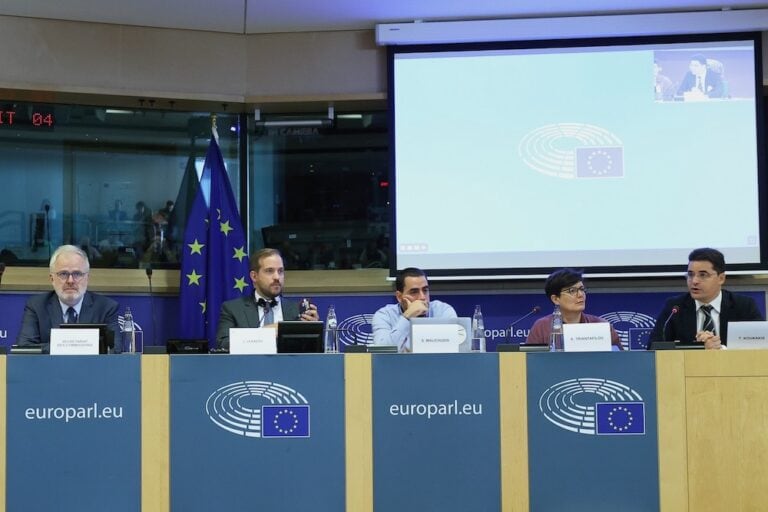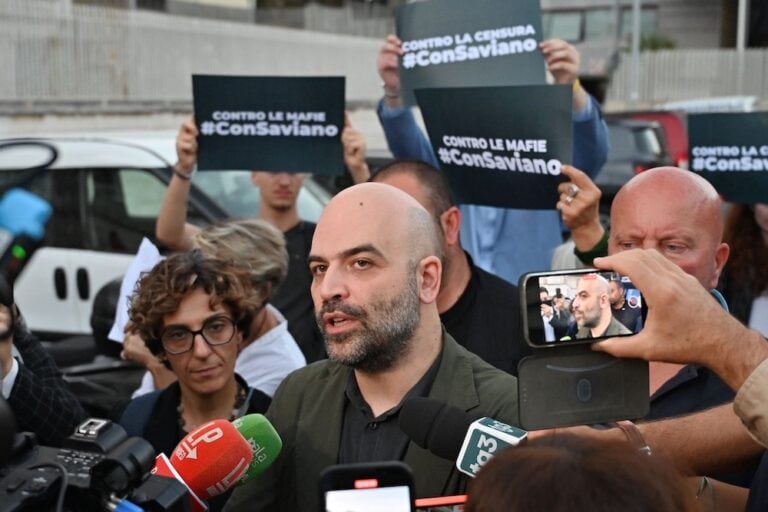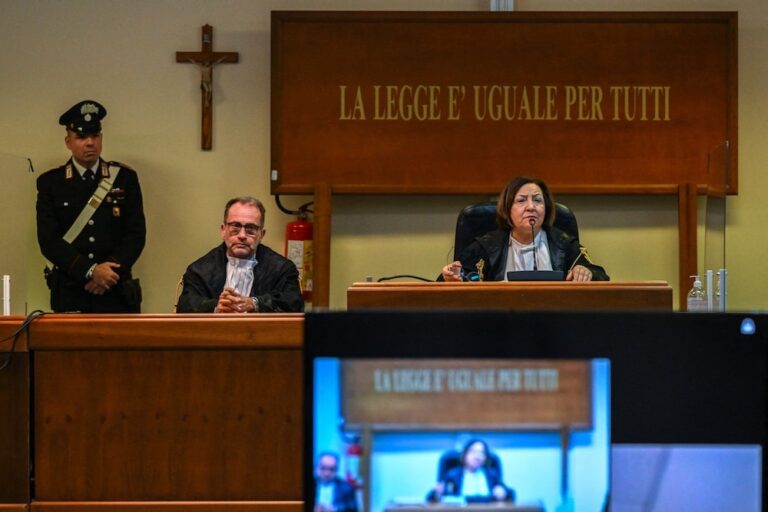(RSF/IFEX) – RSF has accused Italian Prime Minister Silvio Berlusconi of taking a step that is “a flagrant and shocking example of conflict of interest in the media.” On 23 December 2003, Berlusconi, who is both prime minister and the owner of a media empire, signed a decree giving a reprieve to Retequattro, one of […]
(RSF/IFEX) – RSF has accused Italian Prime Minister Silvio Berlusconi of taking a step that is “a flagrant and shocking example of conflict of interest in the media.”
On 23 December 2003, Berlusconi, who is both prime minister and the owner of a media empire, signed a decree giving a reprieve to Retequattro, one of his television stations, which was supposed to move to satellite transmission by the end of the year.
The switch to satellite transmission would have led to a significant loss in Retequattro’s market value. The station, part of Berlusconi’s Mediaset group, can now continue operating as a terrestrial broadcast station until 30 April 2004, when the telecommunications authority is expected to make a new ruling.
“This step is a flagrant and shocking indication of Silvio Berlusconi’s conflict of interest in the media,” said RSF Secretary-General Robert Ménard. “It is not a question of some kind of economic decision. We are disturbed by the breadth of this autocratic gesture and its consequences for pluralism of news and information in Italy,” he added.
Berlusconi’s decree, which has been passed by the cabinet, follows Italian President Carlo Azeglio Ciampi’s refusal to sign into effect a new broadcast media law. The president was of the opinion that the law adopted by Parliament on 2 December contained provisions that were unconstitutional.
The “Gasparri” law, the official purpose of which was to prepare the ground for terrestrial digital television, would also lift the ban on cross-ownership of media and allow one person to own more than two national broadcast stations.
Berlusconi could then retain ownership of his three national stations, Italia 1, Canale 5 and Retequattro. On 20 November 2002, the Constitutional Court ordered that Retequattro must become a satellite station by 1 January 2004, in order to comply with competition laws.
“The president’s message, despite its exceptional nature, was clearly not understood when, less than a week later, the prime minister decides to sign a document himself that protects his private interests,” added Ménard.
RSF noted that a draft law on conflict of interest has yet to be approved by the Senate. The proposed law stipulates that the management of a profit-making enterprise is incompatible with public office, but insists that there is no conflict of interest if the management of the company is entrusted to a third party. Since Prime Minister Berlusconi’s companies are run by family members and associates and Berlusconi’s name does not appear in their organisational charts, there would be no conflict of interest in his case under the proposed law.
In a report entitled, “A media conflict of interest: the Italian anomaly”, published in April 2003, RSF analysed the consequences of Berlusconi’s conflict of interest on news and information pluralism in Italy, which fell to 53rd place in RSF’s 2003 international press freedom ranking.


